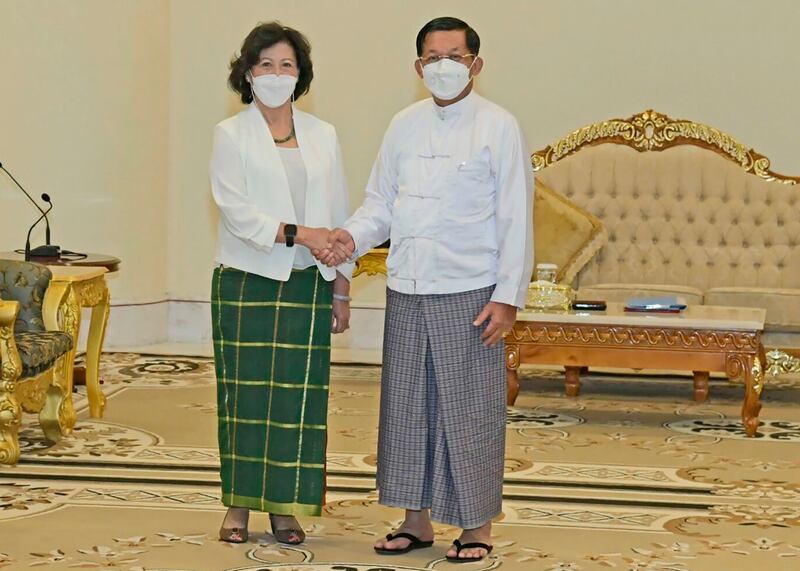Noeleen Heyzer, the U.N. secretary-general’s special representative on Myanmar, will depart the role June 12, according to the United Nations, after a relatively brief term of about 18 months.
The Singaporean national and former U.N. undersecretary general took on the role in October 2021, some nine months after the military coup in Myanmar. She replaced Christine Schraner Burgener, a Swiss diplomat who served in the role for more than three years.
Heyzer’s coming departure was announced Wednesday by U.N. spokesman Stephane Dujarric, who did not provide a reason for the move outside of explaining it was the end of her contract.
Heyzer previously served as the head of the U.N. Development Fund for Women from 1994 to 2007 and of the U.N. Economic and Social Commission for Asia and the Pacific from 2007 to 2014.
“The secretary-general is thankful to Ms. Heyzer for her tireless efforts on behalf of peace and the people of Myanmar,” Dujarric said.
Heyzer was tasked with "urging the Myanmar junta to engage in political dialogue with its opponents and end the crackdown," according to the United Nations, but made little progress.
Envoy role questioned
The U.N. envoy’s time in office was met with mixed reviews.
She met with the military regime's leaders last year, drawing rebuke from the shadow National Unity Government, who questioned the timing of the trip shortly after a military court sentenced the country's deposed leader, Aung San Suu Kyi, to six more years in prison. Suu Kyi faces a total of 33 years in jail for 19 cases.
The NUG and hundreds of society groups then called for her to be removed from the position, and slammed the envoy role itself.

“The long history of the U.N.’s attempts at peace-brokering with Myanmar’s military through special envoys has never catalyzed into meaningful results, but has instead lent legitimacy to perpetrators of international atrocity crimes — and has permitted worsening human rights and humanitarian crises,” the groups said at the time.
Still, Heyzer did not mince her words when it came to the junta.
In a speech to the U.N. General Assembly on March 16, she said that the regime’s plans to hold stage-managed elections in the country this year without engaging in dialogue with the opposition or restoring political rights “risks exacerbating the violence.”
“There is no public trust in the regime, whose interest is seen as consolidating its control by making a transition from emergency rule to a longer-term military-backed government,” Heyzer said.
